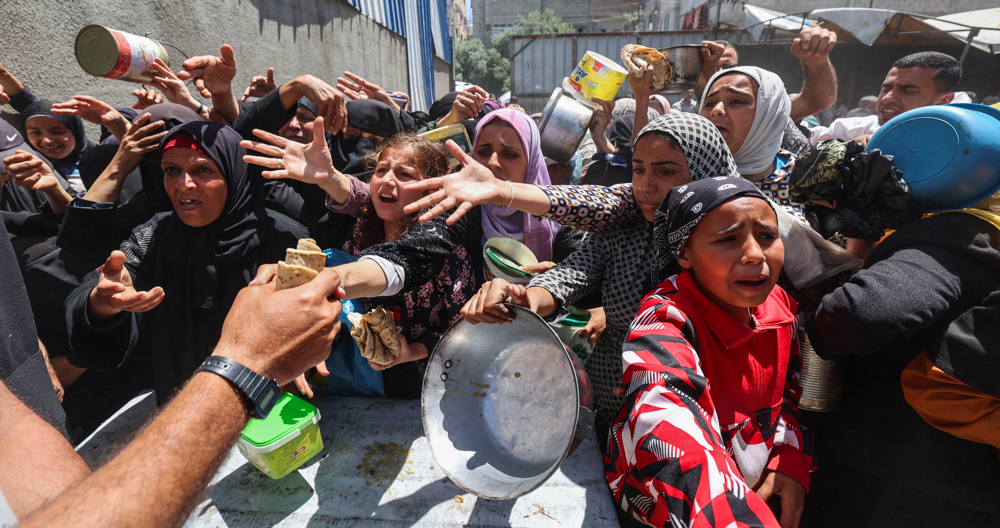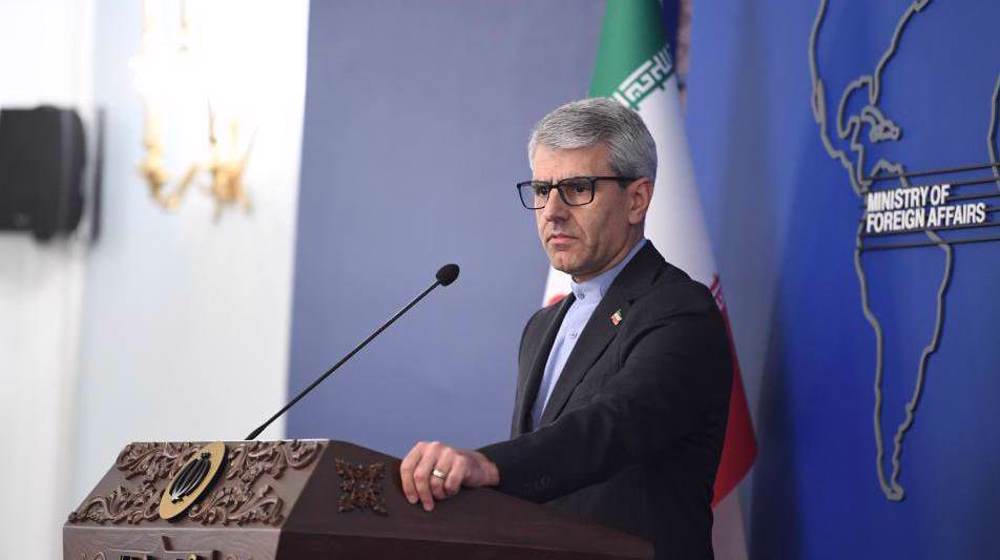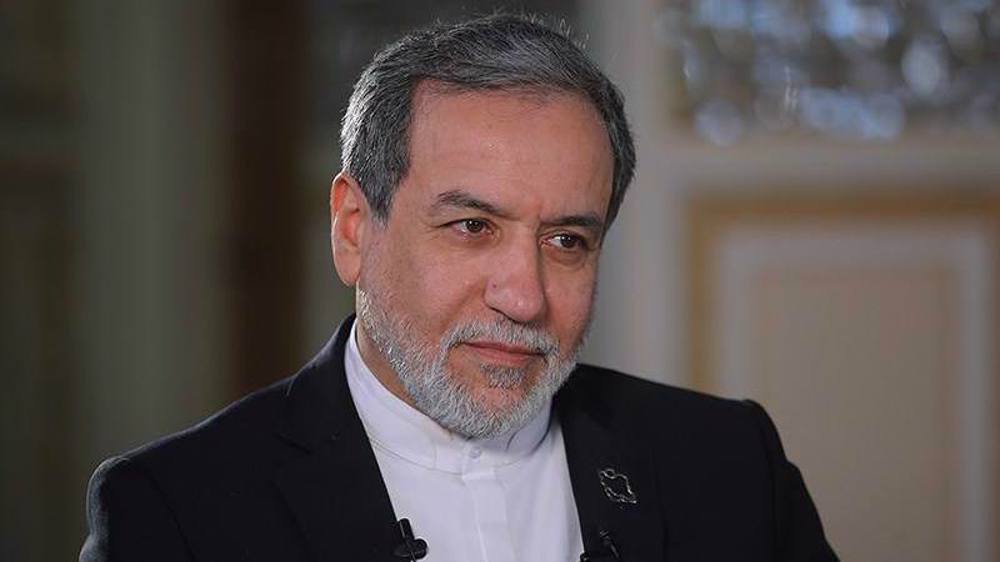Iran nuclear chief: Reining in US' destructive behavior necessary to protect multilateralism
The head of the Atomic Energy Organization of Iran (AEOI) says multilateralism, as the raison d'être of the United Nations system, has come under serious question, emphasizing that there is no way but to get united and put an end to the destructive behavior of the current United States administration for the interests of the international community.
Ali Akbar Salehi made the remarks while addressing the 64th regular session of the International Atomic Energy Agency’s General Conference in Vienna, Austria, on Monday.
“It is no secret that international organizations are under political pressures from certain states, and the IAEA is of no exception. At this critical point in time for multilateralism, on the one hand, the raison d'être of the United Nations system has come under serious question; and on the other hand, the International Atomic Energy Agency is facing a very serious challenge of its kind since its inception,” Iran’s nuclear chief said.
Salehi then described the 2015 landmark nuclear deal signed between Iran and six world powers, officially known as the Joint Comprehensive Plan of Action (JCPOA), as the real turning point in the history of multilateralism and an important achievement of diplomacy.
"On the current status of the Joint Comprehensive Plan of Action, I would like to say that, while there is still a broad agreement among the international community that the JCPOA should be preserved as the real turning point in the history of multilateralism and as an important achievement of diplomacy, the JCPOA is caught in a quasi-stalemate situation due to the illegal withdrawal of the US from the deal," he said.
He emphasized that all members of the international community shoulder a common responsibility to preserve the multilateral accord.
Underlying the responsibility of the Europeans specifically the E3 -- Britain, France and Germany -- as the three European signatories to the JCPOA, the Iranian nuclear chief said, "They must implement their obligations fully and effectively."
"Thus, the deal is preserved only when its provisions are implemented in a balanced manner by all parties involved. As a result, Iran has and had no other option rather [than] adopt a step-by-step approach in implementing paragraphs 26 and 36 of the JCPOA to restore the lost balance to the deal."
Read more:
- Iran: E3 unconstructive draft resolution at IAEA meeting mockery of intl. rules
- Russia slams Europe’s dual standards on JCPOA, ‘destructive’ US actions
US President Donald Trump, a hawkish critic of the landmark nuclear deal, unilaterally withdrew Washington from the agreement in May 2018, and unleashed the “toughest ever” sanctions against the Islamic Republic in defiance of global criticism.
Following its much-criticized exit, Washington has been attempting to prevent the remaining signatories from abiding by their commitments and thus kill the historic agreement, which is widely viewed as a fruit of international diplomacy.
In response to the unilateral US move, Tehran has so far rowed back on its nuclear commitments five times in compliance with Articles 26 and 36 of the JCPOA, but stressed that its retaliatory measures will be reversible as soon as Europe finds practical ways to shield the mutual trade from the US sanctions.
Elsewhere in his address, Salehi expressed Iran's readiness to "continue its efforts and cooperation with others in the international community to bring back multilateralism and diplomacy at the center of international relations."
The AEOI chief hailed the international community for refusing to bow to US's demands and said, "The UN Security Council members in New York have rightly shown that they are not willing to compromise on the achievements simply because of the intimidation approach of one specific member state."
"Thirteen out of 15 members of the Security Council not only unanimously rejected the US Resolution on the extension of the arms embargo against Iran but also didn’t recognize the US as a JCPOA participant to use specific mechanisms of the deal to bring back [the Security] Council’s already terminated sanctions," he added.
On August 14, the UN Security Council almost unanimously refused to support a US-sponsored draft resolution on extending the arms embargo against Iran, which is due to expire in October under the JCPOA.
During the 15-member Security Council vote, the US received support only from the Dominican Republic for its anti-Iran resolution, leaving it far short of the minimum nine "yes" votes required for adoption.
Salehi further commended "utmost vigilance" shown by Iran and the IAEA in relation to their long-term interests and said, "Thus, within the framework of the safeguards obligations of States under the Comprehensive Safeguards Agreement (CSA) and Additional Protocol (AP), the agency should show its determination that it will not compromise its impartiality, independence, and professionalism for the sake of short-sighted comforts."
He emphasized that nuclear safety is among Iran’s highest priorities, adding, "While the responsibility for nuclear safety and security rests entirely with the member states, Iran strongly believes that these areas need to be strengthened and enhanced through cooperation between states."
He said new threats by "malicious sides" have been monitored by way of cyber and other technological instruments, including the recent explosion at Shahid Ahmadi Roshan (Natanz) Nuclear Facility which was the result of sabotage, and urged the IAEA members to condemn such moves.
"Iran reserves its rights to protect its facilities and make necessary reactions to any threat as appropriate," Salehi pointed out.
On July 2, Iran said an incident had affected a shed under construction at Natanz nuclear facility in central Iran, but it caused no casualties and failed to stop enrichment work at the facility.
The spokesman for the AEOI said earlier this month that the country's security forces have identified the perpetrators of the act of sabotage at Natanz.
“It is for the security organizations to painstakingly investigate [the incident] and they are expected to give their final view in this regard. Their investigations are underway and as far as we know, they have detected the agents [who committed the act of sabotage] as well as the motive, methods and manner of the sabotage,” Behrouz Kamalvandi said.
Read more:
- Iran constructing more advanced building near Natanz nuclear site after sabotage: AEOI
- Cause of incident at Natanz nuclear site identified, to be announced at appropriate time: SNSC
- AEOI: Natanz incident causing no work stoppage, slowdown at facility
In his Monday address, the Iranian nuclear chief further highlighted the significance of the IAEA's unequivocal and impartial consideration of the available information on the nuclear activities of Saudi Arabia as the only way to guarantee the agency's professional, impartial, and independent nature of the work.
"If Saudi Arabia is seeking for a peaceful nuclear program, it should act in a very transparent manner and allow the agency’s inspectors to verify its activities," Salehi said.
He also called on the IAEA to adopt an "unbiased and professional approach" to the Israeli regime as a non-party to the Non-Proliferation Treaty (NPT), which has continually and adamantly refused to adhere to the agency's safeguards.
"This regime which is the main source of instability and insecurity in the region as well as a threat to international peace and security, should abandon its Weapons of Mass Destruction program and accede to the NPT without further delay and precondition," the Iranian nuclear chief said.
Israel, which is believed to be in possession of hundreds of nuclear warheads, is the sole owner of nuclear arms in the Middle East. Still under Washington’s protection, Tel Aviv has neither bothered to join the NPT nor put its nuclear work under the IAEA surveillance.

Blatant crime: Iran censures Israel’s attack on Gaza-bound aid ship off Malta

Iran: US, West complicit in Israel’s killing of journalists in Gaza

Araghchi plans to visit Pakistan, India this week: FM Spox Baghaei tells Press TV
Old Bailey Palestine Action Protest
Palestinian death toll in Gaza rises by 47 as genocide goes on unabated
VIDEO | S Korea-based Palestinians, their supporters network with global activists
Pakistan warns India of ‘befitting response’ in case of attack
Palestinian official abducted by HTS forces in Syrian capital: Reports
VIDEO | Israel attacks Gaza Freedom Flotilla
VIDEO | Press TV's news headlines
Iran: US, West complicit in Israel’s killing of journalists in Gaza








 This makes it easy to access the Press TV website
This makes it easy to access the Press TV website